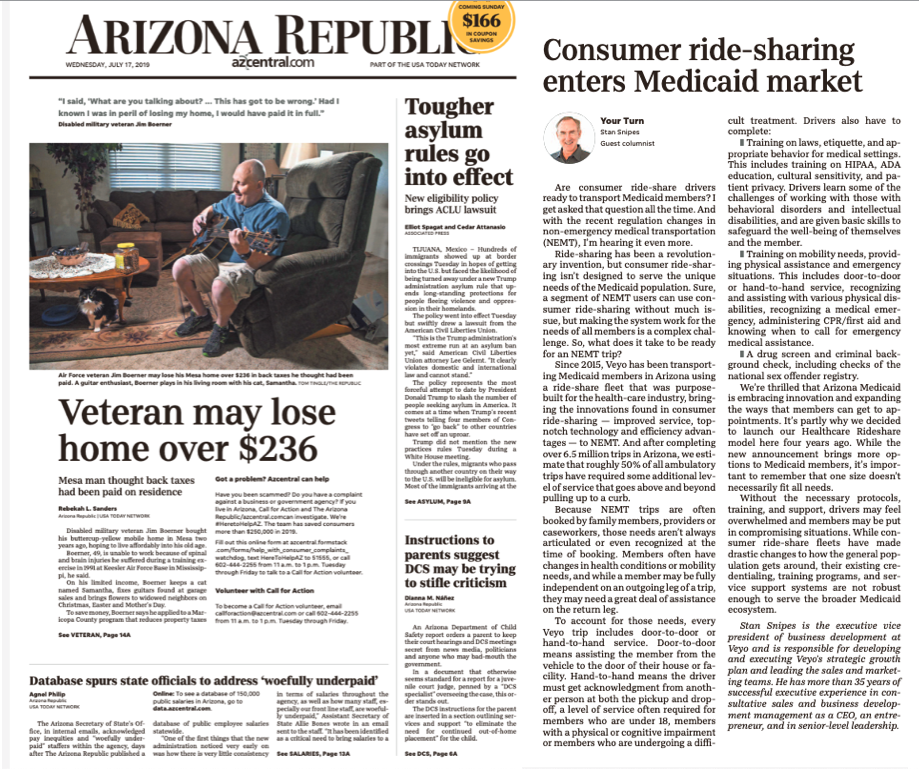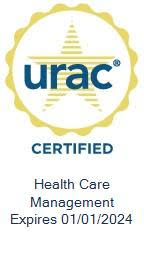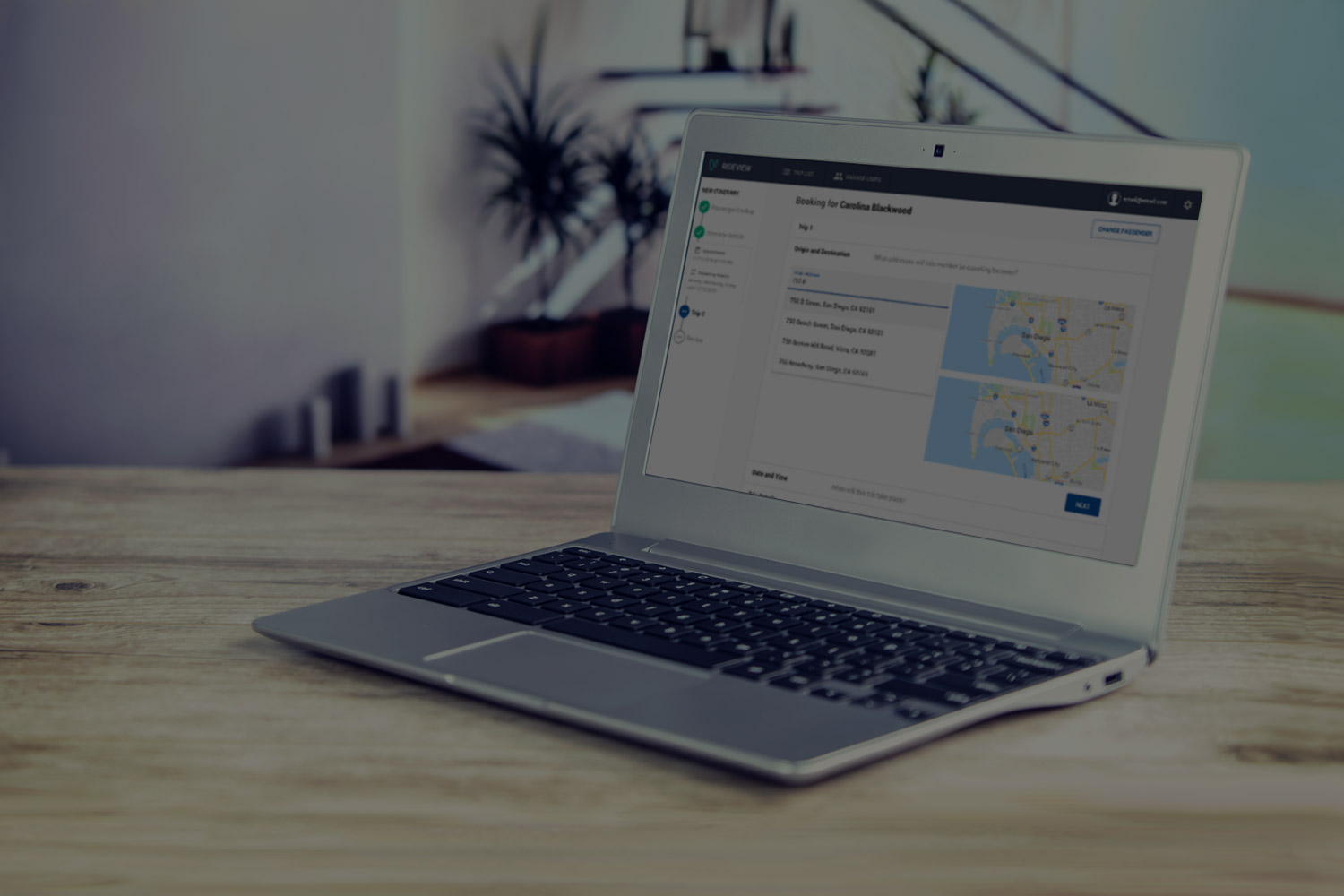Veyo in the Arizona Republic: Consumer Ridesharing Enters Medicaid Market
July 17, 2019
Veyo was recently featured in the Arizona Republic with an op-ed by our EVP of Business Development, Stan Sipes. Stan spoke on the latest trends of consumer ridesharing companies entering the Medicaid market and what to expect. The article is reprinted below.
——-
“Are consumer rideshare drivers ready to transport Medicaid members? I/we get asked that question all the time. And with the recent regulation changes in non-emergency medical transportation (NEMT), I’m hearing it even more. Ridesharing has been a revolutionary invention, but consumer ridesharing isn’t designed to serve the unique needs of the Medicaid population. Sure, a segment of NEMT users can use consumer ridesharing without much issue, but making the system work for the needs of all members is a complex challenge. So what does it take to be ready for an NEMT trip?
Since 2015, Veyo has been transporting Medicaid members in the state of Arizona using a rideshare fleet that was purpose-built for the healthcare industry, bringing the innovations found in consumer ridesharing – improved service, top-notch technology, and efficiency advantages – to NEMT. And after completing over 6.5 million trips in Arizona, we estimate that roughly 50% of all ambulatory trips have required some additional level of service that goes above and beyond pulling up to a curb. Because NEMT trips are often booked by family members, providers, or case workers, those needs aren’t always articulated or even recognized at the time of booking. Members often have changes in health conditions or mobility needs, and while a member may be fully independent on an outgoing leg of a trip, they may need a great deal of assistance on the return leg.
To account for those needs, every Veyo trip includes door-to-door or hand-to-hand service. Door-to-door means assisting the member from the vehicle to the door of their house or facility. Hand-to-hand means the driver must get acknowledgment from another person at both the pickup and drop-off, a level of service often required for members who are under 18, members with a physical or cognitive impairment, or members who are undergoing a difficult treatment. Drivers also have to complete:
- Training on laws, etiquette, and appropriate behavior for medical settings: This includes training on HIPAA, ADA education, cultural sensitivity, and patient privacy. Drivers learn some of the challenges of working with those with behavioral disorders and intellectual disabilities, and are given basic skills to safeguard the wellbeing of themselves and the member. 24/7 driver support exists for situations that may require additional assistance, such as a child being unexpectedly separated from a case worker or a dialysis patient experiencing severe hypotension after treatment.
- Training on mobility needs, providing physical assistance, and emergency situations: This includes door-to-door or hand-to-hand service, recognizing and assisting with various physical disabilities, recognizing a medical emergency, administering CPR/First Aid, and knowing when to call for emergency medical assistance. Drivers learn that many members may not be able to present promptly at the curb, wait outside, be able to speak or converse with the driver due to disability or language skills, or be able to call/text with a driver to coordinate a pickup.
- A drug screen and criminal background check, including checks of the national sex offender registry: Many utilizers of the NEMT system may not be able to advocate or protect themselves from improperly vetted individuals, e.g. those undergoing drug rehabilitation therapy may be particularly at risk if exposed to an active drug user.
We’re thrilled that Arizona Medicaid is embracing innovation and expanding the ways that members can get to appointments. It’s partly why we decided to launch our Healthcare Rideshare model here four years ago. While the new announcement brings more options to Medicaid members, it’s important to remember that one size doesn’t necessarily fit all needs. Without the necessary protocols, training, and support, drivers may feel overwhelmed and members may be put in compromising situations. While consumer rideshare fleets have made drastic changes to how the general population gets around, their existing credentialing, training programs, and service support systems are not robust enough to serve the broader Medicaid ecosystem.”
Want to learn more about our efforts in Arizona?
Download our latest white paper: Ridesharing in NEMT.




